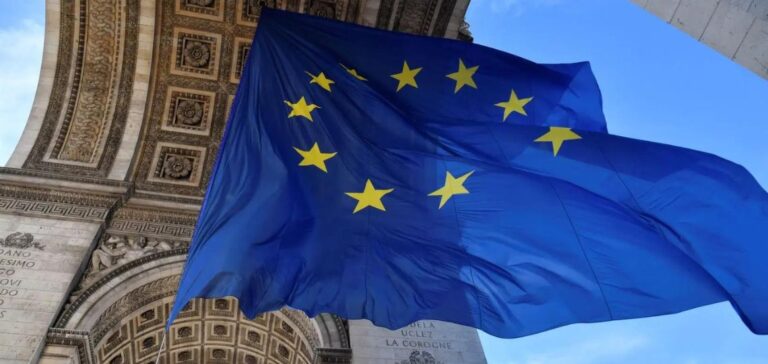European Union states and MEPs agreed on Thursday to almost double the share of renewables in energy consumption by 2030, a key component of the ambitious European climate plan.
The text recognizes biomass (wood burned to produce energy) as “green”, much to the displeasure of environmental NGOs concerned about the impact on forests, and takes into account the role of nuclear power to produce decarbonized hydrogen, a bone of contention among the 27.
The agreement, reached after a night of final talks, sets a binding target of at least 42.5% of renewable energy in European consumption by 2030, a near doubling of the current level of about 22% (19% in France). It is accompanied by an “indicative” target level of 45% that states will strive to achieve. “Renewables will contribute to our energy sovereignty by reducing fossil imports” and will lighten bills, welcomed Frans Timmermans, vice president of the Commission. The NGO European Environmental Bureau, however, regretted a target “low and exceeded”, while “the modelled scenarios show that 50% are possible and recommended to comply with the Paris Agreement”.
In fact, the EU is already on the right track. After doubling since 2004, the share of renewables is, “under current conditions”, on track to reach 45% by 2030, or even 50% “in case of increased support”, estimated in late February the firm Ember, noting in particular the exponential growth of solar.
Simplified procedures
The text accelerates the authorization procedures, with the establishment of “dedicated areas” where the national authorities will be required to approve new renewable energy installations within 18 months (limited to 27 months outside). The EU is planning for 49% renewables in energy consumption in buildings, with a progressive greening trajectory for heating and cooling. In the transport sector, by 2030, states must either reduce greenhouse gas intensity by 14.5% through renewables, or reach 29% of renewables in the final energy consumption of the sector. A binding target is set for the use of “advanced biofuels” (derived from non-food materials) or “non-biological renewable fuels” (hydrogen, synthetic fuels).
“Specific status” of nuclear energy
Industrialists will have to increase their use of renewables by 1.6% per year. In each country, the share of renewable hydrogen in the hydrogen used by industry should reach 42% by 2030. However, the Swedish Presidency of the EU, negotiating on behalf of the States, has obtained a more flexible target for countries with nuclear power plants that can produce decarbonated hydrogen. The issue has torn the EU-27 apart: France and its allies demanded equal treatment for renewable and “low-carbon” hydrogen – a red line for several countries (Germany, Austria, Luxembourg, Spain…), which refused to encourage nuclear power in a text devoted to green energies at the risk of slowing down investment in renewables.
Finally, the agreement reached provides that the 2030 renewable hydrogen target may be reduced by 20% for states where the “fossil” share of hydrogen consumption is below 23%. “France will not be obliged to build renewable energy to produce hydrogen for industry and transport, but will be able to use nuclear power,” which is given “a specific status, neither green nor fossil,” observes MEP Pascal Canfin (Renew, centrists). This will satisfy both Paris and the countries that refuse to accept any formal equivalence between atomic energy and green energy. “This agreement recognizes the role of nuclear power in achieving our decarbonization objectives, which is an important step forward in principle,” said French Minister Agnès Pannier-Runacher. This flexibility will apply on condition that the country meets its mandatory contribution to the overall target of 42.5% of renewables in the EU, insists MEP Markus Pieper (EPP, right), rapporteur of the text.
Biomass
The agreement maintains the “renewable” status of bioenergy, but strengthens the “sustainability” criteria for biomass, whose sources will be prioritized according to their “economic and environmental added value”. Some forest areas will be excluded, public aid will be more restricted. Fiercely defended by the Scandinavian countries, the practice is denounced by environmentalists when half of the wood harvest in Europe is already burned to produce energy. This law “will reward energy companies for burning millions of trees, our main terrestrial carbon sink, exacerbating the climate and biodiversity crisis, and undermining people’s health,” says Martin Pigeon, of the NGO Fern.





















